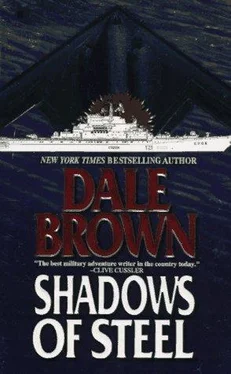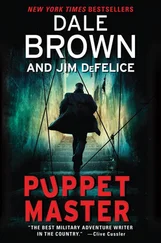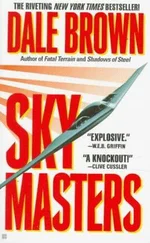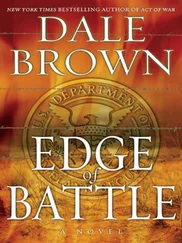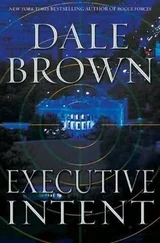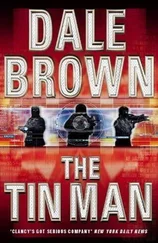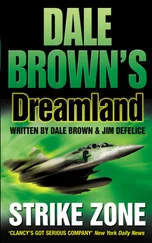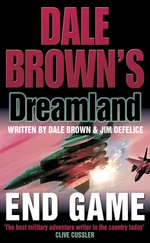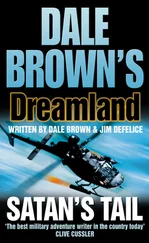“I wouldn’t be surprised to see Iran start flying F-16 fighters soon,” Secretary of Defense Chastain interjected.
“That’s not a joke, sir,” Freeman observed. “We believe Pakistan, Bangladesh, Indonesia, Malaysia, as well as China are supplying Iran with advanced Western hardware. It comes down to simple economics: few countries can afford to turn down the money Iran is paying for arms and advanced technology.”
“Are they a threat to the Lincoln carrier group?” the President asked.
“By itself, they can’t stand up against a carrier battle group like the Lincoln, sir,” Chastain chimed in. Chastain, a four-term U.S. Senator and nationally recognized military affairs expert, was well suited for his post in the Pentagon; unlike many political appointees, he knew the U.S. military as well as he knew Congress, and he had made himself familiar over the years with modern warfare and strategic thinking. “However, they would most likely operate well within range of land-based air forces and it could call upon another one hundred small attack craft to harass our group. I feel certain we could destroy most of iran’s air force and navy in a matter of days. Shadowing the Lincoln would just highlight how small the Khomeini is next to our ships—you can set the Khomeini on Lincoln’s deck with plenty of room to spare.” Chastain’s smile flickered, then faded as he asked: “What about that third Kilo sub, General? Is it in dry dock as last reported?”
“We haven’t located the Iranian Kilo submarine—we thought it was in dry dock at the new sub base at Chah Bahar, but it disappeared,” Freeman acknowledged. He turned to the President: “The Kilo-class subs are diesel subs, no anechoic—anti-sound—coating on their hull, but still much quieter than nuclear-powered subs because they run on batteries while submerged. They can’t stay under as long, but when they’re under they’re hard to find and track, especially in the Persian Gulf and Strait of Hormuz.”
“They could cause a hell of a lot of destruction with two subs and an aircraft carrier, no matter how much firepower we bring against them,” the Vice President added. The Oval Office fell silent once again; even Chastain, an ardent Navy supporter, couldn’t argue with that. “I think it’s unlikely we’ll get into a carrier war with Hartman added, “but it’s a major concern. An American carrier hasn’t been sunk in combat since the battle of Midway—it would be a tremendous boost to Iranian morale if they did it, even if they eventually lost the war.
“We’re going to see that scenario doesn’t happen,” the President said resolutely. “I don’t like the idea of Iran threatening us or barring us from navigating the open seas, but the Lincoln group could be a major target. I’m not prepared to send them in harm’s way until we’re ready to go all out and defend them with everything we’ve got.
“Arthur, keep the Lincoln group in the Arabian Sea for now until we find out more.” The Secretary of Defense reluctantly nodded in agreement. To the National Security Advisor, the President asked, “Phil, any speculation on what Iran might do if they start a shooting war?”
“The new Iranian military doctrine is simple: ensure Muslim world security and demonstrate its leadership by strict control of the skies and seas over and near its borders,” Freeman said.
“Well-armed internal security forces like the Pasdaran hunt down insurgents and rebels and control the border; this leaves the regular military forces free to roam all of southwest Asia. The regular military’s primary emphasis is on three areas: the Persian Gulf, the Strait of Hormuz, and the Gulf of Oman; by far, the most important of these areas is the Strait of Hormuz—it’s the choke point in the sea lanes to and from the Persian Gulf.
“The conventional theory says that if Iran is provoked, they’ll cut off the Strait of Hormuz by application of massive shore-based anti-ship missile attacks, backed up by air-to-surface missile attacks using large numbers of supersonic aircraft, including heavy bombers, and by small, fast attack boats carrying anti-ship missiles or guns,” Freeman went on. “The missile sites would be defended with heavy concentrations of ground, sea, and airborne air defense forces that they’ve built up in tremendous numbers over the past few years. Without the application of concentrated suppression attacks, the Strait of Hormuz would become an impenetrable gauntlet. If successful, Iran could cut off nearly half of the region’s oil exports.”
“Ha4(the Persian Gulf oil?”
“Exactly,” Freeman acknowledged. “And the threat doesn’t stop there. With a few massive air raids, Iran can cut the Gulf pipelines flowing out of Saudi Arabia, Kuwait, Bahrain, Oman, and the UAE—there goes another twenty-five percent of the region’s oil. With their new long-range Backfire supersonic bombers, they might be able to cut the transArabian pipelines running west to the Red Sea—there goes another ten to fifteen percent. The rest—flowing from Iran itself—would presumably be cut by us. If successful, Iran could cut the entire world’s oil supply by thirty percent, all by itself, in a very, very short, lightning-fast blitzkrieg.”
“No oil from the Middle East,” Hartman murmured aloud. “One-third of the world’s oil supply … almost half of America’s oil supply.
It would be a catastrophe, Mr. President,” “And we couldn’t stop it from happening,” Chastain said. “I can say, as we stand right now, that it would take far longer than six months to amass a force equivalent to the one mobilized in Desert Shield, and it would be far more dangerous to U.S. forces. Even if the Iranians made the same mistake as Iraq did and let us accumulate our forces in Saudi, it would take us almost a year to build up a seven-hundred-fifty-thousand-man fighting force.”
“A year!” Vice President Whiting exclaimed. “You’re exaggerating!”
“I wish I was only trying to be conservative, Ellen,” Chastain said, “but I believe that’s an accurate assessment. At the end of the Cold War, we switched from a deployed counteroffensive force to a defensive expeditionary force—except that the money wasn’t spent on boring, low-tech things such as more cargo planes, container ships, and railroad cars. In addition, we’ve got fewer active-duty forces, and we pulled them out of overseas bases back to the U.S. We’ve got fewer soldiers, they’re farther from the Middle East, and we’ve got fewer transports to take them where they need to go. Bottom line, Mr. President: we plan on a year and hope for a miracle.” Everyone in the Cabinet Room was stunned into silence.
They all remembered the buildup prior to the Gulf War of 1991; although the first American defensive forces had arrived in Saudi Arabia less than a day after the invasion of Kuwait, it had seemed it would take forever to build up to what could be called an offensive force. Even when Desert Shield had turned into Desert Storm, no one had been sure if they had enough men and equipment to do the job. It had been sheer luck—and they all knew it, although few dared admit it—that Saddam Hussein had decided not to press his attack on Saudi Arabia, Israel, and Turkey during the Coalition’s long mobilization, and that Coalition forces had had powerful, oil-rich friends with large military facilities. “What do we have over there right now, Arthur?” Martindale asked.
“We’ve got a token force over in the Persian Gulf region right now,” Chastain replied. He quickly scanned his briefing notes, his shoulders visibly slumping as he read: “One carrier group currently within striking distance of Iran; one F-16 attack wing and one F-15 fighter wing in Saudi, just forty planes and one thousand men; three Patriot anti-missile and antiaircraft companies, split up between Kuwait, Saudi, and Turkey, plus one training company in Bahrain and one training company in Israel; one bomber wing in Diego Garcia. A total of about fifteen thousand troops—a trip-wire force, nothing more.
Читать дальше
